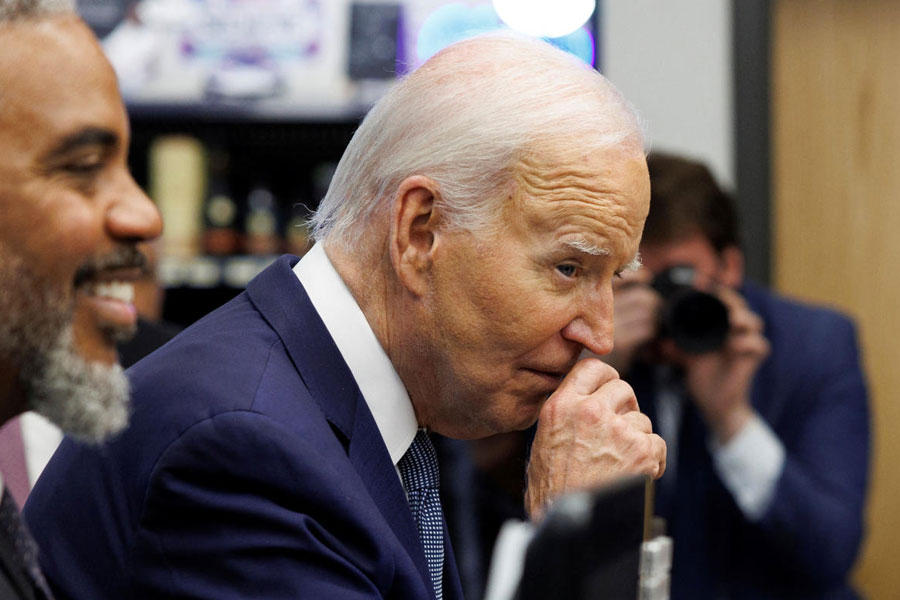President Joe Biden, warning that the country’s courts were being weaponised as part of an “extreme and unchecked” conservative agenda, said on Monday that he would push for legislation that would bring major changes to the Supreme Court, including term limits and an enforceable code of ethics on the justices.
Biden detailed his plans in a speech at the Lyndon B. Johnson Presidential Library and Museum in Austin, Texas, his first public engagement since announcing his decision to end his presidential campaign last week.
His visit was initially scheduled to commemorate the 60th anniversary of the Civil Rights Act. But it quickly became a venue for Biden to begin buttoning up a 51-year legislative legacy while outlining an election-year intention to try to stop what many in his party feel is the Supreme Court’s ideological drift into conservatism.
The proposal would require congressional approval and has little hope of gaining traction in a Republican-controlled House and a divided Senate. Speaker Mike Johnson called the plan “dead on arrival” in the House. (Biden later said Johnson’s “thinking is dead on arrival”.)
This month, the court issued a 6-3 ruling that grants immunity to Presidents from prosecution for actions they take while in office. Biden called for a constitutional amendment that would limit such immunity. “For all practical purposes, the court’s decision almost certainly means that the President can violate the oath, flout our laws and face no consequences,” Biden said. “Folks, just imagine what a President could do trampling civil rights and liberties, given such immunity.”
Biden, warning that “extremism is undermining the public confidence in the court’s decisions”, said conservative plans for sweeping policy changes if former President Donald Trump wins a second term, known as Project 2025, would continue to push the courts to the Right.
“They’re serious, man,” Biden said. “They’re planning another onslaught attacking civil rights in America.”
His remarks were met with support from others in his party, including Vice-President Kamala Harris, the presumptive Democratic presidential nominee, who said she was a partner in the effort and would take up Biden’s proposal in her campaign.
“These popular reforms will help to restore confidence in the court, strengthen our democracy and ensure no one is above the law,” she said in a statement sent by her campaign.
Conservative activist Leonard A. Leo, known for making the appointments of conservative judges a core of the Republican Party’s agenda, assailed Biden’s efforts as partisan: “It’s about Democrats destroying a court they don’t agree with,” he said in a statement.
Biden and his advisers argue that Americans are broadly concerned about the inner workings of a court that has swung to the Right in the years since Biden took office. Recent polls show that the Supreme Court’s approval rating is at a historic low and that a majority of Americans believe that the court’s decisions are driven by ideology.
In his remarks on Monday, Biden said a system of lifetime appointments to the Supreme Court gave a President undue influence for decades, and he endorsed 18-year term limits for the justices. He said he supported a code of conduct that would require justices to disclose gifts, refrain from public political activity and recuse themselves from cases in which they or their spouses have financial or other conflicts of interest, calling them “common-sense reforms that a vast majority of Americans support.”
The amendment he proposed curbing the court’s immunity ruling would state that the Constitution does not confer to former Presidents any immunity from criminal indictment, trial, conviction or sentencing, a fact sheet released by the White House said. But a constitutional amendment limiting that decision would be difficult to enact, requiring two-thirds votes in Congress or at a convention called for by two-thirds of the states, followed by ratification by three-fourths of the state legislatures.











